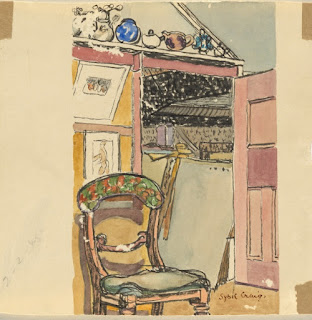 |
| François-Nicolas Chifflart Persée 1867 etching National Gallery of Australia, Canberra |
 |
| François-Nicolas Chifflart Salvator Rosa amongst the Brigands 1863 etching National Gallery of Australia, Canberra |
 |
| François-Nicolas Chifflart The Surprise 1865 etching National Gallery of Australia, Canberra |
 |
| François-Nicolas Chifflart Triumph of Truth and Justice 1866 etching National Gallery of Canada, Ottawa |
-1798-hand-colored-etching-Blanton-Museum-of-Art-Austin-Texas.jpeg) |
| James Gillray The Apotheosis of Hoche (anti-Jacobin satire) 1798 hand-colored etching Blanton Museum of Art, Austin, Texas |
-1797-hand-colored-engraving-Lowe-Art-Museum-University-of-Miami.jpeg) |
| James Gillray Pylades & Orestes (Boswell and Johnson) 1797 hand-colored engraving Lowe Art Museum, University of Miami |
 |
| James Gillray The Great South Sea Caterpillar transformed into a Bath Butterfly (satire on the Prince Regent) 1795 hand-colored etching National Gallery of Australia, Canberra |
 |
| James Gillray Uncorking Old Sherry (satire on British politicians) 1805 hand-colored engraving Lowe Art Museum, University of Miami |
-c1924-drawing-National-Gallery-of-Australia-Canberra.jpg) |
| Sybil Craig Study of a Cast of the Dancing Faun ca. 1924 drawing National Gallery of Australia, Canberra |
 |
| Sybil Craig Interior ca. 1935 gouache and ink on paper National Gallery of Australia, Canberra |
 |
| Sybil Craig Protea Flower Piece 1965 oil on canvas National Gallery of Australia, Canberra |
 |
| Sybil Craig Flowers ca. 1942 linocut National Gallery of Australia, Canberra |
 |
| Adrian Feint Flower Piece 1940 oil on canvass National Gallery of Australia, Canberra |
 |
| Adrian Feint Ex Libris - Edward, Prince of Wales 1934 wood-engraving National Gallery of Australia, Canberra |
 |
| Adrian Feint Strange Shore 1948 watercolor on paper National Gallery of Australia, Canberra |
 |
| Adrian Feint The Green Hen 1931 oil on canvas Art Gallery of New South Wales, Sydney |
from In Memory of Sigmund Freud
Only Hate was happy, hoping to augment
his practice now, and his dingy clientele
who think they can be cured by killing
and covering the gardens with ashes.
They are still alive, but in a world he changed
simply by looking back with no false regrets,
all he did was to remember
like the old and be honest like children.
He wasn't clever at all: he merely told
the unhappy Present to recite the Past
like a poetry lesson till sooner
or later it faltered at the line where
long ago the accusations had begun,
and suddenly knew by whom it had been judged,
how rich life had been and how silly,
and was life-forgiven and more humble,
able to approach the Future as a friend
without a wardrobe of excuses, without
a set mask of rectitude or an
embarrassing over-familiar gesture.
No wonder the ancient cultures of conceit
in his technique of unsettlement foresaw
the fall of princes, the collapse of
their lucrative patterns of frustration:
if he succeeded, why, the Generalised Life
would become impossible, the monolith
of State be broken and prevented
the co-operation of avengers.
– W.H. Auden (1939)